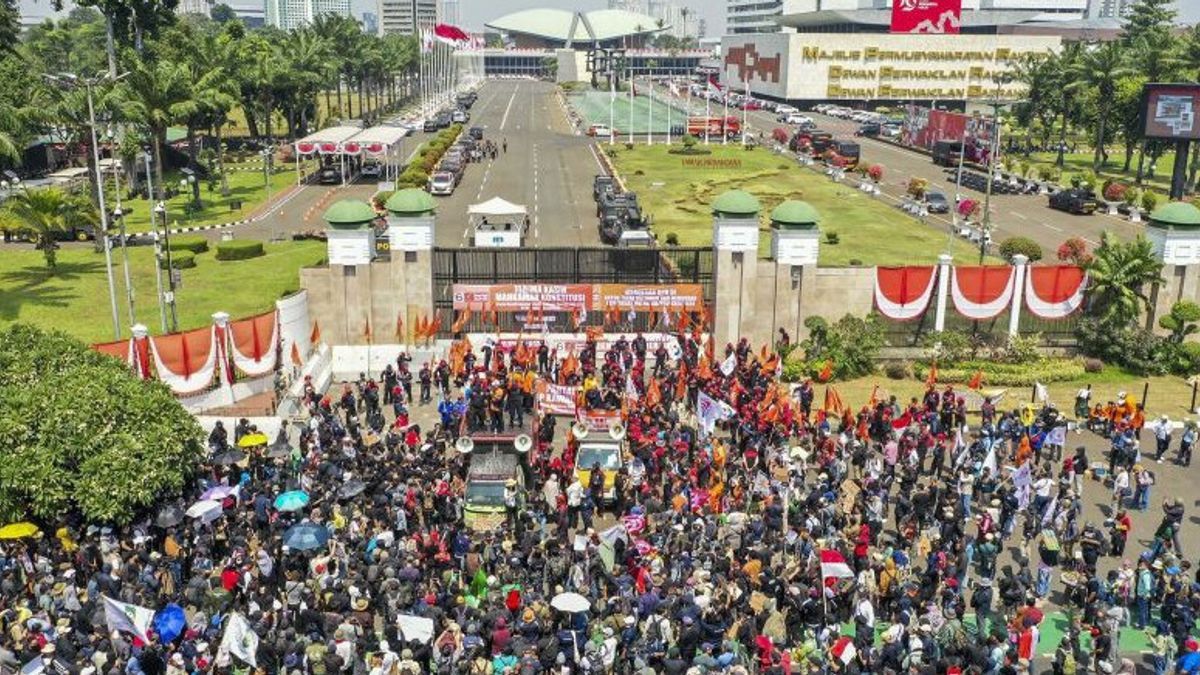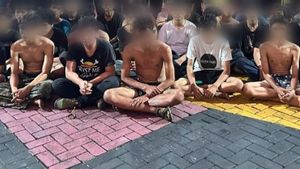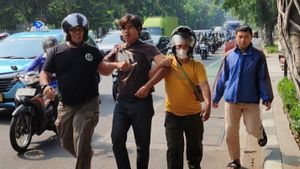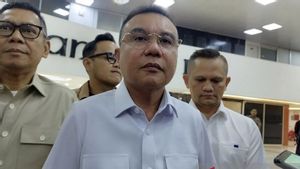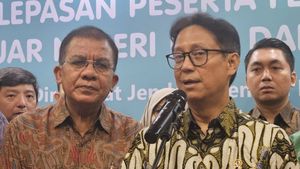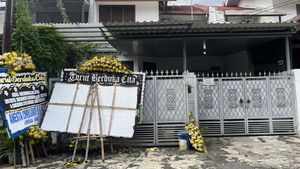JAKARTA The chaos of the DPR RI is taking a constitutional route to annull the decisions of the Constitutional Court No. 60 and No. 70, it is considered legal by some parties and does not violate the law. However, there is an assumption that the momentum taken is not appropriate, giving the impression of being forced. This is what makes the people angry and conduct massive demonstrations in various regions.
This was conveyed by the Chairman of the Indonesian Law Enforcement Consortium (KOPHI) Rudy Marjono. Rudy assessed that if the DPR RI was too fast, the moment would not be right.
"The authority of a decision issued by a judicial institution lies in the force that binds him. The decision of the Constitutional Court (MK) not only binds the applicants, but must also be obeyed by anyone. So that the Constitutional Court's decision can be carried out immediately by no longer requiring a decision from an authorized official, except for other laws and regulations.," said Rudi during a conversation with VOI, Friday, August 23.
According to Rudy, in this case the Constitutional Court's decision applies to the principle of Erga Omnis whose legal nature applies publicly and applies to anyone. Well, here the principle applies to Erga Omnes. The principle that reflects the binding legal force. And because of its public legal nature, it applies to anyone. It does not only apply to litigants, as stated in article 10 paragraph (1).
Calling Article 10 paragraph (1), Rudy also detailed, the explanation of Law Number 8 of 2011 concerning Amendments to Law Number 24 of 2003 concerning the Constitutional Court.
The decision of the Constitutional Court is final, namely the decision of the Constitutional Court to immediately obtain legal force since it was pronounced and no legal action can be taken. The final nature of the decision of the Constitutional Court in this law also includes binding legal force (finals and bindings). Rudy explained.
SEE ALSO:
Rudy again explained that the principle of Erga Omnes was reflected in the phrase final character and binding in a Constitutional Court decision.
"The actions of the DPR RI actually do not change the Constitutional Court's decision because it is final and binding, so the way to do this is by making a new law. Now here the point of the problem, so that the public sees it, seems like the trick of a pro-regime political elite group that doesn't want a constellation that has been built so far, with a scenario that is easy for us to read where to go. With the Constitutional Court's decision, everything can fall apart, because it will lead to other candidates who can fight in the Pilkada. " he said.
For Rudy, there is nothing wrong with the DPR RI to make a new law to change the rules of the game in the Pilkada. However, continued Rudy, it is unusual because the impression was forced, and rushed.
"So what the public reads is the administration of the constitution, and because the election contestation is full of political interests, creating a devastating explosion of rejection. And if the DPR RI wants to be patient and postpone it next year, I don't think there will be a commotion like yesterday. Because the new draft law can still be in the Constitutional Court again, when it doesn't fulfill a sense of justice, "explained Rudy closing the conversation.
Reported by VOI on August 21, the DPR and the government dismissed allegations that they had annulled the decision of the Constitutional Court regarding the threshold for nominating political parties to carry candidates in the regional elections through the revision of the Regional Head Election Law which was approved in level I discussions.
Deputy Chairman of the Legislation Body (Baleg) of the House of Representatives, Achmad Baidowi, claims that the DPR and the government have adopted part of the Constitutional Court's decision by more detail in the contents of the Pilkada Bill.
"The DPR and the government did not change the decision, did not cancel the Constitutional Court's decision, but adopted the Constitutional Court's decision and then detailed it. Detailed what? Related to the non-parliamentary parties, it was arranged separately, related to political parties where seats in parliament were arranged separately," said Awiek.
He said the DPR and the government have the authority to formulate laws, while the Constitutional Court does not.
"Because the authority of the DPR creates new norms. In every Constitutional Court decision, the DPR may create new norms. Every time it forms a law, there are also many considerations for the Constitutional Court's decision," he said.
The English, Chinese, Japanese, Arabic, and French versions are automatically generated by the AI. So there may still be inaccuracies in translating, please always see Indonesian as our main language. (system supported by DigitalSiber.id)
